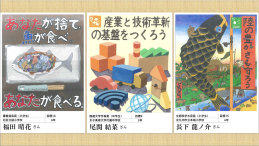On 30 March, 14 middle and high school students from across Japan — winners of the annual national writing contest for the Oku-Inoue Commemorative Youth UN Visit Program (Tokyo Program) — visited UNU Headquarters in Tokyo. The student visit was hosted by the United Nations Association of Japan and the Ministry of Foreign Affairs of Japan.
This year’s contest welcomed 2,148 submissions, but only 46 submissions passed the preliminary round. The students chose essay topics from a predetermined list of questions such as, ‘How can Japan become an international leader in the international community?’ and ‘How can Japan work with the United Nations to achieve the Sustainable Development Goals (SDGs)?’.
The first half of the tour introduced the students to the different United Nations organisations located in the UNU Headquarters building. They also visited the main facilities, including Elizabeth Rose Hall and U-Thant Hall — the sites of numerous, past, high-profile UNU events. The students were intrigued with the history behind the naming of the halls and the many famous guests who had visited them.
The second half of the tour included a meet-and-greet with UNU Senior Vice-Rector Dr Sawako Shirahase. Dr Shirahase gave a presentation on the history, the mission, and the background of UNU, and then opened the floor for a question and answer session with the students. One student asked, “Peace and development are part of UNU’s mission. There have been questions about the connection between the two. What is the significance and importance of development?” Dr Shirahase answered:
"As you have stated there are developed countries that are at peace and those that are not. There are good things that come out of those who are developed. However, on the other hand, there is the issue of power. Of course, the base for all of us is to have a decent lifestyle. Peace and development may not be simultaneously and directly related, but we are all connected, so how do we all come together to fix these issues, and which policies should we prioritise and contribute first? In that sense, our goal is a world of peace and is to respect each other’s differences. Thus, your generation is to understand that no matter what country or situation, we must think about how we can all live together."
Another student asked about the true meaning of pursuing higher education and if its true meaning has been misaligned, especially in Japan where it is more about practicality and finding a job. Dr Shirahase answered:
"The most important point of going into higher education, as one of my students has shared, is to strengthen your social imagination skills. With the situation in Ukraine, in truth, there are those who have limited life choices and opportunities. If the same situation were to occur in Japan, how would we react? We have never experienced it, so all we can do is imagine it. But to be able to have the power to imagine, we can discuss different topics, we are able to meet people with different backgrounds, and understand the situation from different perspectives. But you need to put your own effort into this. That is part of going to university, and universities have different fields and faculties. This is where you get a specialised education and various learning experiences. With the opportunities you have and the environment you have grown up in, I would like you to put effort into your social imagination."
Following the discussion, Dr Shirahase thanked the students for their visit and impressive questions, the group gathered for a photo, and the students were given sets of memorabilia including SDG pins, UNU pamphlets, resources, and notebooks.





